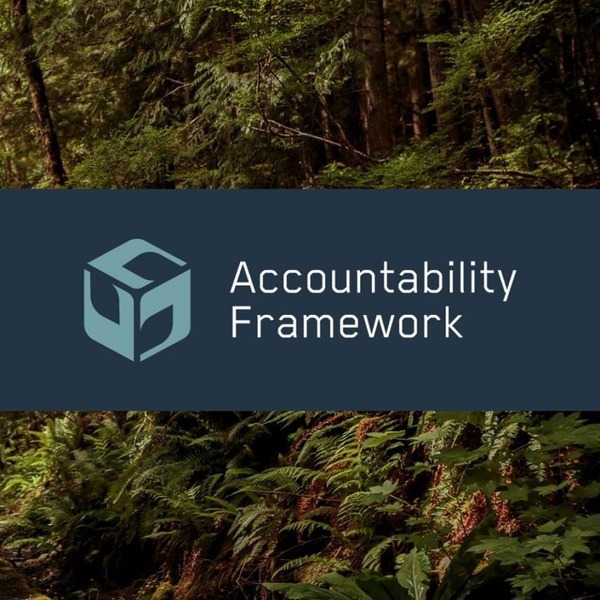
In late 2016, a diverse coalition came together for a common purpose: to accelerate progress and improve accountability on company commitments to protect forests, natural ecosystems, and human rights. Recognizing the need to close the gap between commitments and results, the members of this coalition launched the Accountability Framework initiative (AFi).
From 2017 through early 2019, the AFi led a consultative process to develop the Accountability Framework – a set of common definitions, norms, and guidelines for delivering on companies’ ethical supply chain commitments. With the release of version 1.0 of the Framework in June 2019, the AFi is now supporting and promoting the use of this Framework by companies and other users.
The Challenges
In recent years, growing public concern over climate change, biodiversity loss, environmental degradation, and human exploitation has elevated corporate responsibility to an urgent imperative. Hundreds of forward-thinking business leaders have pledged to transform their agriculture and forestry production systems and supply chains to protect ecosystems, people, and communities. These commitments support important global initiatives and targets, including the Paris Climate Agreement, the New York Declaration on Forests, UN Sustainable Development Goals, and the Bonn Challenge for landscape restoration.
Yet companies seeking to honor their commitments and demonstrate progress are often unclear about the path forward, despite the recent proliferation of tools and initiatives intended to help. Several key obstacles have impeded progress to date:
- Misalignment of definitions, metrics, and requirements across different standards, tools, and initiatives makes it difficult for companies to know which tools to use to fulfill their commitments, as well as how context-specific tools relate to global commitments.
- The lack of broad-based consensus of environmental and social NGOs has created further ambiguity regarding expectations for responsible supply chains.
- Norms and good practices for numerous aspects of implementation – including supply chain management, respect for land rights, remediation, traceability, monitoring, reporting, and claims – have not been sufficiently well articulated.
- There has been no standard way to assess progress or outcomes.
Partly because of these challenges, action and progress toward supply chain commitments is generally lagging: many companies have not met interim milestones; they are reporting only on activities, not results; and they are facing large implementation challenges.
In the context of these challenges, the Accountability Framework responds to requests from the private sector for NGOs to develop a clear and common set of implementation guidelines. It also responds to the need for common measures of success that can be pursued and monitored across the full range of commodity and geographic contexts where commitments apply.
The Solution
To address these needs for clarity and consistency, the Accountability Framework provides a common roadmap for setting, implementing, and monitoring ethical supply chain commitments in agriculture and forestry. These norms reflect the consensus of a diverse coalition of respected conservation and human rights NGOs from around the world. They were developed in close consultation with the private sector and other key stakeholders to establish a harmonized global reference that is applicable across commodities and regions.
The Accountability Framework is intended to be applied directly by companies and their service providers to help guide the establishment, implementation, and monitoring of commitments. As a global “umbrella” of harmonized norms, the Framework can also help companies better navigate existing tools to implement their commitments across disparate contexts. In addition, the Framework is being used to help guide the development and updating of other standards, monitoring tools, guidelines, and regional and sector initiatives to align with global norms and best practices in the Framework. This helps create a more coherent and effective overall set of tools to address social and environmental risk in supply chains. Finally, the Framework is informing efforts to track progress relative to company commitments and broader pledges such as the New York Declaration on Forests.
Through these multiple pathways, the Accountability Framework will help to mainstream common and effective approaches to ethical production and trade through the efforts of companies, industry associations, service providers, government, and civil society.
Our Theory of Change
The aim of the AFi is to catalyze a broad shift to ethical practices in agricultural and forestry production and trade, so that these activities protect natural ecosystems, respect human rights, and improve the wellbeing of people and communities in commodity-producing landscapes. These impacts will be realized through the fulfillment of strong ethical supply chain commitments.
| Output | Outcome | Impact |
|---|---|---|
| An Accountability Framework for ethical supply chain commitments that includes definitions, principles, norms, and operational guidance to increase alignment among existing initiatives and fill critical gaps. | Common principles and good practices for effective commitment-setting, implementation, monitoring, and accountability are widely understood, accepted, and applied by companies, service providers, government, civil society, and opinion leaders. | Wide application of the Framework results in substantial reductions in commodity-linked ecosystem destruction and human exploitation. Efforts of companies and governments collectively advance broader sustainability targets and support sector transformation. |
Image Upload
Add image